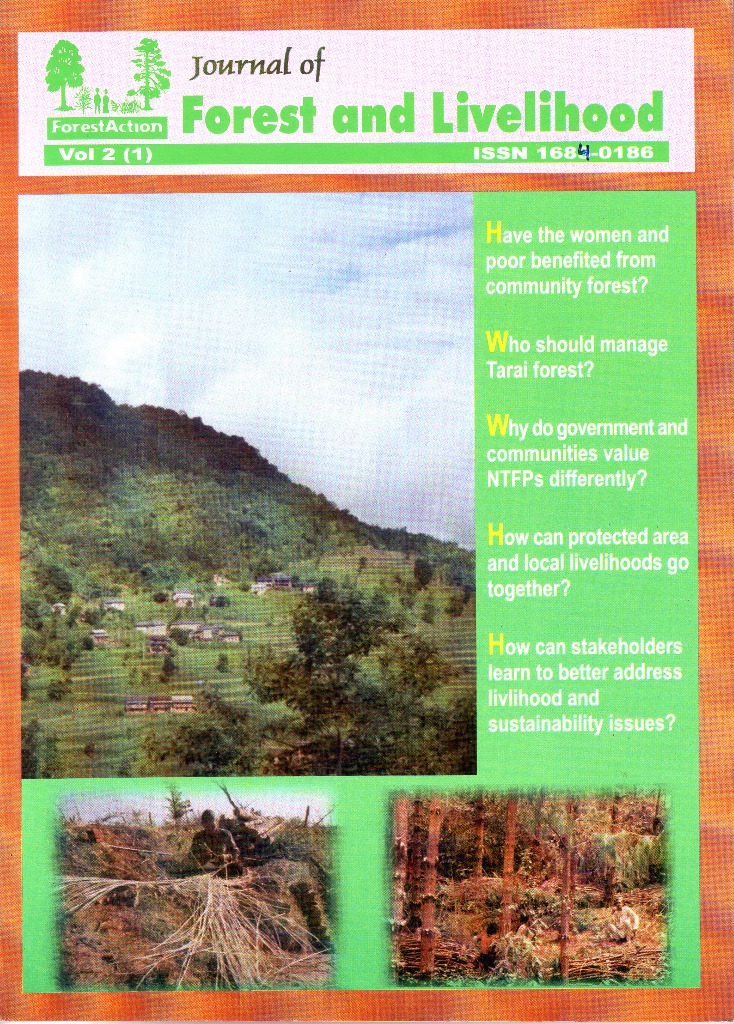Participating or Just Sitting In? The Dynamics of Gender and Caste in Community Forestry
DOI:
https://doi.org/10.3126/jfl.v2i1.59671Keywords:
community forestry, social relations, genderAbstract
Community Forestry has successfully promoted sustainable resource use across Nepal. But to what extent do the programs fulfill the goal of providing resources for the poorest of the poor? Although some attention has been paid to the issue of participation of women and marginalized castes within CF, there is no or limited investigation into how such members participate, the extent to which they
influence management decisions and the implications of this for sustainable resource management. This article first outlines why equating gender with women is problematic and then highlights the importance of integrating other forms of social difference into an understanding of social power. Using case study data from north-western Nepal, it is shown that how implementation of community
forestry needs to take into account pre-existing social relations for the programs to be universally successful.
Downloads
Downloads
Published
How to Cite
Issue
Section
License

This work is licensed under a Creative Commons Attribution-NonCommercial 4.0 International License.
CC-BY-NC: This license allows reusers to distribute, remix, adapt, and build upon the material in any medium or format for noncommercial purposes only, and only so long as attribution is given to the creator.





